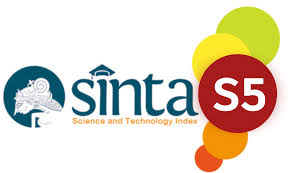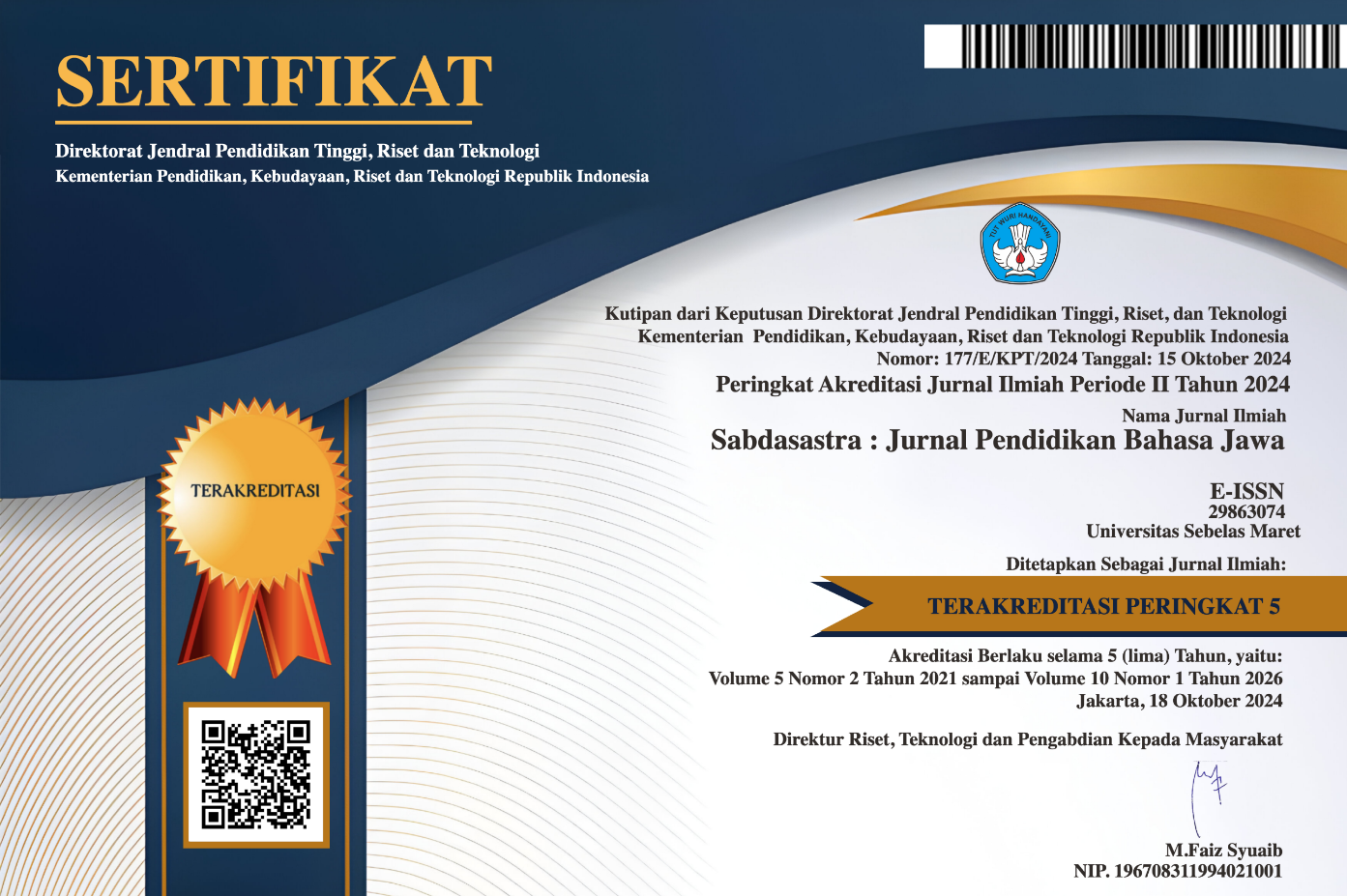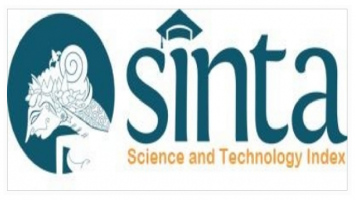Nilai Kearifan Lokal dalam Tradisi Anggara Kasih Patirtan Cabean Kunti
Abstract
Keywords
Full Text:
PDFReferences
Brata, I. B. (2016). Kearifan Budaya Lokal Perekat Identitas Bangsa. Jurnal Bakti Saraswati (JBS), 5(1): 9 – 16.
Dahliani, dkk (2015). Local Wisdom in Built Environment in Globalization Era. International Journal of Education and Research, 3(6): 157 – 166.
Koentjaraningrat. (2009). Pengantar Ilmu Antropologi. Jakarta: Rineka Cipta.
Marfai, M.A. (2013). Pengantar Etika Lingkungan dan Kearifan Lokal. Yogyakarta: Gadjah Mada University Press.
Meliono, I. (2011). Understanding the Nusantara Thought and Local Wisdom as an Aspect of the Indoeneisan Education. Tawarikh: International Journal for Historical Studies, 2(2): 221 – 234.
Miles and Huberman. (2014). Analisis Data Kualitatif: Buku Sumber Tentang Metode-Metode Baru. Jakarta: Universtitas Indonesia Press.
Purwaningsih, dkk. (2016). Kearifan Lokal Dalam Tradisi Nyadran Masyarakat Sekitar Situs Liang. Yogyakarta: Balai Pelestarian Nilai Budaya.
Rais, W. A. (2017). Kearifan lokal dalam bahasa dan budaya Jawa: studi kasus masyarakat Nelayan di pesisir selatan Kebumen Jawa Tengah: kajian etnoliguistik. Surakarta: UNS Press.
Santoso, E. N. (2021). Latar Belakang, Prosesi, dan Nilai-Nilai Kearifan Lokal Upacara Tradisi Ulur-Ulur Telaga Buret Campurdarat Kabupaten Tulungagung dan Relevansinya dengan Materi Ajar Bahasa Jawa di SMA. Tesis. Universitas Sebelas Maret.
Saryono, D. (2017). Model Pendidikan Karakter Bangsa Berbasis Kearifan Lokal di Sekolah di Provinsi Jawa Timur. Waskita: Jurnal Pendidikan Nilai dan Pembangunan Karakter, 1(1): 137-148.
Setiawan, D. (2018). Dampak perkembangan teknologi informasi dan komunikasi terhadap budaya. Jurnal Simbolika: Research a nd Learning in Communication Study (E-Journal), 4(1): 62 – 72.
Srimelisa, D., Thahar, H. E., & Arief, E. (2019). Kontribusi Keterampilan Membaca Pemahaman Teks Deskripsi terhadap Keterampilan Menulis Teks Deskripsi Siswa Kelas VII SMP Negeri 1 Bayang Utara. Jurnal Pendidikan Bahasa dan Sastra Indonesia, 8(2), 53-61.
Sugiyono. (2013). Metode Penelitian Kuantitatif, Kualitatif dan R&D. Bandung: Alfabeta
Sulaksono, Djoko. (2016). Seputar Budaya Jawa. Surakarta: CakraBooks Solo.
Widiatmaka, P. (2022). Strategi Menjaga Eksistensi Kearifan Lokal Sebagai Identitas Nasional di Era Disrupsi. Pancasila: Jurnal Keindonesiaan, 2(2): 136 – 148.
Refbacks
- There are currently no refbacks.










